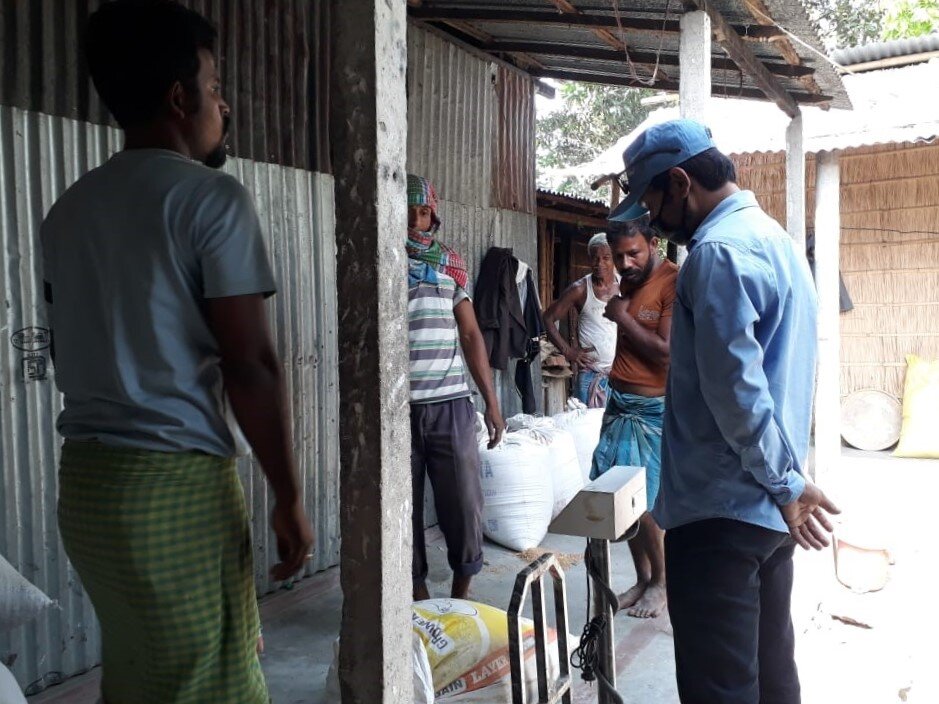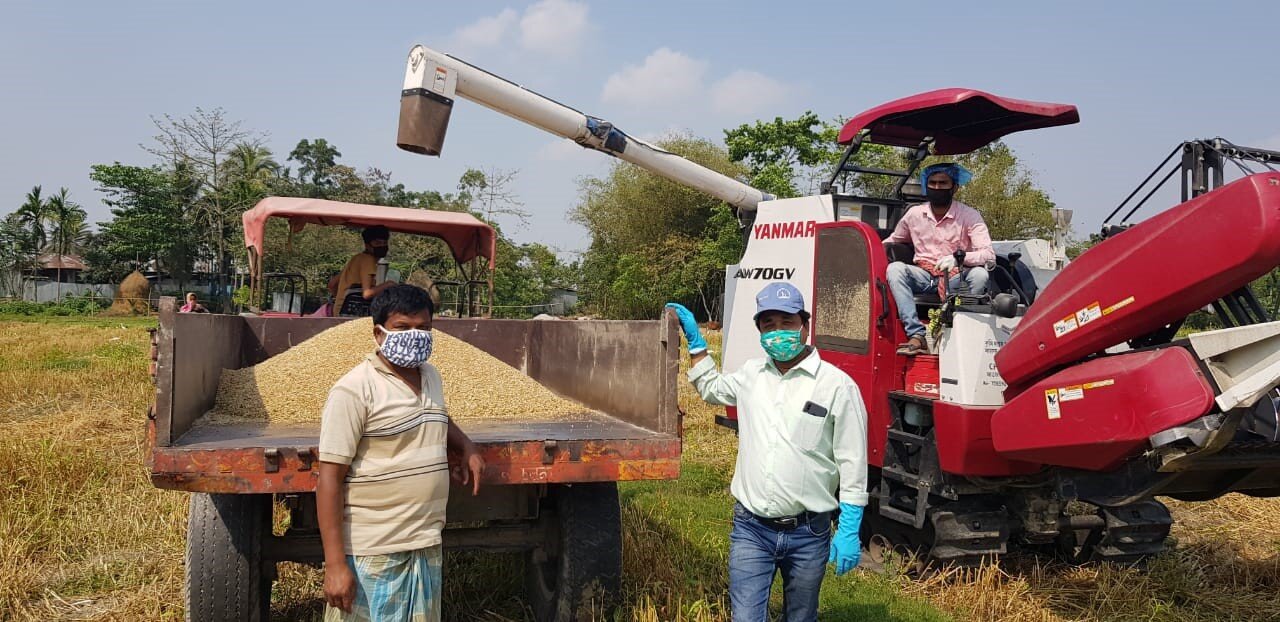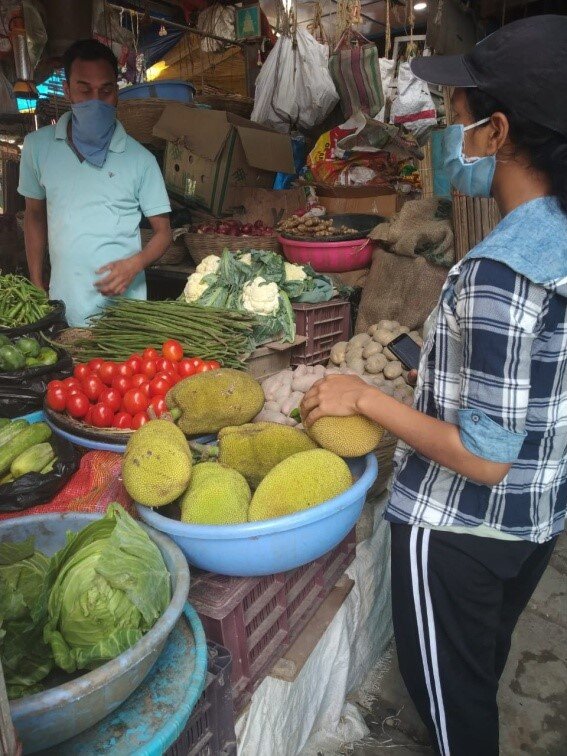Mitigating the impacts of COVID-19 on farmers and markets in West Bengal
The period when the government of India announced a 21-day national lockdown due to the COVID-19 pandemic coincides with the time when India’s peak farm activity takes place when winter crops like wheat is harvested and sold. Winter vegetables are also being produced and cannot be readily stored. Stopping farm activities will surely hurt farmers and laborers, but some adverse effect on food security is also possible.
“In terms of food scarcity, the challenge is minimal for the farmers here in Coochbehar as they mostly have rice stored at home which would have helped them to tide over these difficult times for at least 4-5 months. However, the bigger fear is the loss of produce currently where labor is not available, and weather is not favorable either. ”
— Amal Roy, Secretary, SSCOP
Though it is a wise step taken to limit the spread of the virus, the lockdown is clearly disrupting some activities in agriculture and supply chains. Unavailability of labour has always been an issue, but disruptions in supply chains because of transportation problems have added additional complications.
Acting quickly to mitigate farmers’ problems, Satmile Satish Club O Pathagar (SSCOP) of Coochbehar, one of the SRFSI partners, received approval from the District Magistrate to use a combine harvester on 500 bighas (67 ha) of wheat fields where wheat was sown without tillage, to assist wheat farmers who cannot access labour. They are also allowed to continue the operation of their input shop to help make farming activities easier for farmers of Coochbehar district.
With increasing inaccessibility to agricultural labour, the use of agricultural machines like combine harvesters has increased in Coochbehar. Harvesting activity has begun because forecast rain will destroy the ripened wheat crop if delayed. The district has already been hit by a hail storm in early April, leading to crop losses for smallholder farmers of possibly up to 80 to 90 crores Indian Rupees (AUD $185,000).
Market access problems related to the lockdown needed to be urgently addressed, especially for smallholder farmers who are now more reliant than ever on their farm production. To help farmers in selling their wheat and relieve them from further distress, the SSCOP team has started purchasing wheat in large quantities which will be used as a seed for the next season. In total SSCOP has purchased 122 quintals of wheat from 22 farmers at a fair price, and has set a target of 300 quintals (30 tonnes).
In addition to wheat, SSCOP has started a new initiative where they will purchase vegetables directly from farmers and supply them to the doorsteps of consumers in the urban areas of Cooch Behar municipality through online or phone booking. The SSCOP Team will carry out the procurement, grading and sorting and supply of farm fresh vegetables by maintaining effective health and hygiene compliances following the Government Guidelines. SSCOP through this initiative intends to help the vegetable farmers of Cooch Behar, as well as consumers.
SRFSI has been collaborating with SSCOP since 2014 to improve farming systems for smallholder farmers in Coochbehar. SSCOP are focusing their attention and prioritizing smallholder farmers at this time of desperate need, which will not only act as a safety net but also help bring resilience in food security.
For more information, please contact Dr Brendan Brown ([email protected]).


